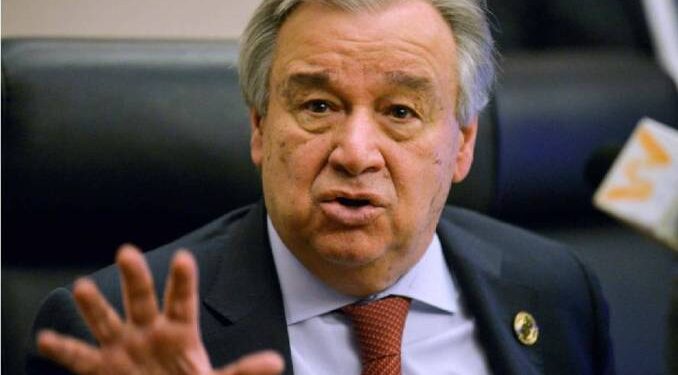The UN says attacks against Ukrainian port infrastructure are not isolated and with Russia’s termination of the Black Sea Initiative, are impacting on global food prices and affecting the most vulnerable people.
Farhan Haq, Deputy Spokesman for Secretary-General Antionio Guterres said this at a news conference in New York on Monday.
The Danube port of Izmail, in the Odesa Region, was attacked on Aug. 2. The attack damaged facilities storing thousands of tons of food grain.
“The secretary-general also condemned Russia’s intensification of attacks on Ukrainian ports, calling for the immediate cessation of all attacks against civilians and civilian infrastructure in Ukraine,” he said.
The Black Sea Initiative enabled the export of millions of metric tons of food from Ukrainian ports, and together with the UN’s parallel accord with Russia on export of food and fertiliser, had been vital for global food security and price stability, including in areas hit hard by conflict and hunger, such as Afghanistan, the Horn of Africa and Yemen.
Denise Brown, UN Humanitarian Coordinator in Ukraine, visited Izmail port on Saturday, three days after the attack.
“The thousands of tons of grains that were damaged would have been enough to feed approximately 66 million people for a day,” she said.
“Relentless attacks by Russian forces on grain stores and port infrastructure in Ukraine form an extremely alarming pattern of harm and may constitute a grave violation of international humanitarian law,” she added.
Meanwhile across Ukraine, the UN Office for the Coordination of Humanitarian Affairs (OCHA) continues to sound the alarm about the plight of civilians already facing a dire situation, as the intensification of attacks affecting critical civilian infrastructure in the country will likely worsen the humanitarian needs, according to Haq.
The $3.9 billion Humanitarian Response Plan for 2023 launched earlier this year, aims to reach some 11.1 million people across Ukraine with assistance, according to OCHA
However as of end-July, it had only been about 30 per cent funded, impacting humanitarians’ efforts at providing aid to those in need. (NAN)


